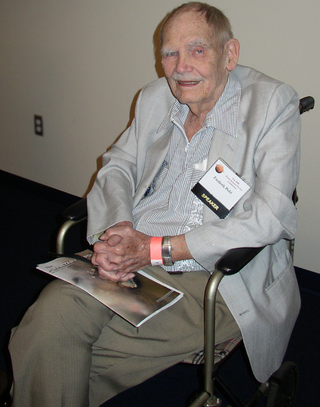
Frederik George Pohl Jr. was an American science-fiction writer, editor, and fan, with a career spanning nearly 75 years—from his first published work, the 1937 poem "Elegy to a Dead Satellite: Luna", to the 2011 novel All the Lives He Led.

The Germanic peoples were historical groups of people that once occupied Northwestern and Central Europe and Scandinavia during antiquity and into the early Middle Ages. Since the 19th century, they have traditionally been defined by the use of ancient and early medieval Germanic languages and are thus equated at least approximately with Germanic-speaking peoples, although different academic disciplines have their own definitions of what makes someone or something "Germanic". The Romans named the area belonging to North-Central Europe in which Germanic peoples lived Germania, stretching East to West between the Vistula and Rhine rivers and north to south from Southern Scandinavia to the upper Danube. In discussions of the Roman period, the Germanic peoples are sometimes referred to as Germani or ancient Germans, although many scholars consider the second term problematic since it suggests identity with present-day Germans. The very concept of "Germanic peoples" has become the subject of controversy among contemporary scholars. Some scholars call for its total abandonment as a modern construct since lumping "Germanic peoples" together implies a common group identity for which there is little evidence. Other scholars have defended the term's continued use and argue that a common Germanic language allows one to speak of "Germanic peoples", regardless of whether these ancient and medieval peoples saw themselves as having a common identity.

Oswald Ludwig Pohl was a German SS functionary during the Nazi era. As the head of the SS Main Economic and Administrative Office and the head administrator of the Nazi concentration camps, he was a key figure in the Final Solution, the genocide of the European Jews. After the war, Pohl went into hiding; he was apprehended in 1946. Pohl stood trial in 1947, was convicted of crimes against humanity, and sentenced to death. After repeatedly appealing his case, he was executed by hanging in 1951.

Sabine Bergmann-Pohl is a German doctor and politician. A member of the Christian Democratic Union of Germany (CDU), she was president of the People's Chamber of East Germany from April to October 1990. During this time, she was also the interim head of state of East Germany, holding both posts until the state's merger into West Germany in October. She was the youngest, only female and last head of state of East Germany. After the reunification of Germany, she served in the government of Chancellor Helmut Kohl, first as one of many Minister for Special Affairs appointed to provide representation for the last East German government in the Kohl cabinet, then as Parliamentary State Secretary in the Ministry of Health for the remainder of Chancellor Kohl's time in office.

Hugo von Pohl was a German admiral who served during the First World War. He joined the Navy in 1872 and served in various capacities, including with the new torpedo boats in the 1880s, and in the Reichsmarineamt in the 1890s. He eventually reached the rank of Vizeadmiral and held the position of Chief of the Admiralty Staff in 1913. He commanded the German High Seas Fleet from February 1915 until January 1916. As the commander of the surface fleet, he was exceedingly cautious, and did not engage the High Seas Fleet in any actions with the British Grand Fleet. Pohl was an outspoken advocate of unrestricted submarine warfare, and he put the policy into effect once he took command of the fleet on 4 February 1915. Seriously ill from liver cancer by January 1916, Pohl was replaced by Reinhard Scheer that month. Pohl died a month later.
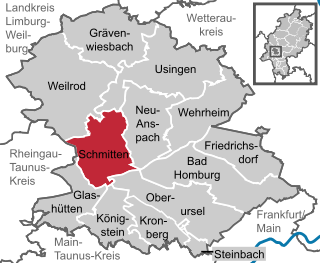
Schmitten im Taunus is a municipality in the Hochtaunuskreis in Hessen, Germany.

Deutsche Vermögensberatung (DVAG), which loosely translates into English as "German wealth advisors", is a company based in Frankfurt, Germany. The DVAG is active in Germany, Austria and Switzerland. Founded in 1975 by Reinfried Pohl, the company is managed by Deutsche Vermögensberatung Holding and is Germany’s largest stand-alone financial services distributor.
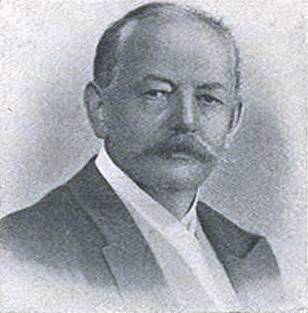
Heinrich Gustav Adolf Engler was a German botanist. He is notable for his work on plant taxonomy and phytogeography, such as Die natürlichen Pflanzenfamilien, edited with Karl A. E. von Prantl.
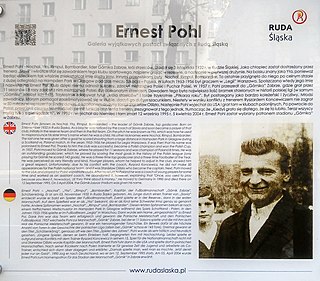
Ernest Pohl, a.k.a. Ernst Pol, was a Polish football player. He was born in Ruda, Poland and died in Hausach, Germany.

The SS Main Economic and Administrative Office was a Nazi organization responsible for managing the finances, supply systems and business projects of the Allgemeine-SS. It also ran the concentration camps and was instrumental in the implementation of the Final Solution through such subsidiary offices as the Concentration Camps Inspectorate and SS camp guards.

Pöhl is a municipality in the Vogtlandkreis district, in Saxony, Germany.

Schonach im Schwarzwald is a town in the district of Schwarzwald-Baar in Baden-Württemberg in Germany.

Soviet prisoners of war (POWs) held by Nazi Germany and primarily in the custody of the German Army, were starved and subjected to deadly conditions. Of nearly six million that were captured, around 3 million died during their imprisonment, largely in 1941. Germany did not apply the Geneva Convention treatment protocols on Soviet POWs, unlike prisoners from some other nations armed forces. Some of the prisoners, particularly commissars, Asians, Soviet Jews and female combatants were systematically targeted for swift execution. Similarly, prisoners were shot for being wounded, ill, or unable to keep up with forced marches. Captured servicemen were subjected to forced labor under conditions worse than civilian forced laborers or prisoners of war from other countries. More than 100,000 were transferred to Nazi concentration camps, where they were treated worse than other prisoners. Nearly a million Soviet prisoners of war served as volunteer auxiliaries to the German military; others joined the SS. Collaborators were essential to the German war effort as well as to the Holocaust in Eastern Europe.

Deutsche Wirtschaftsbetriebe, abbreviated DWB, was a project launched by Nazi Germany in World War II. Organised and managed by the Allgemeine SS, its aim was to profit from the use of slave labour extracted from the Nazi concentration camp inmates.
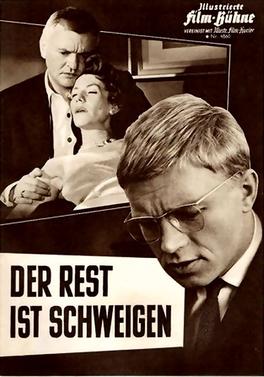
The Rest Is Silence is a 1959 West German crime film directed by Helmut Käutner. It was entered into the 9th Berlin International Film Festival.

Wiener schnitzel, sometimes spelled Wienerschnitzel, is a type of schnitzel made of a thin, breaded, pan-fried veal cutlet.
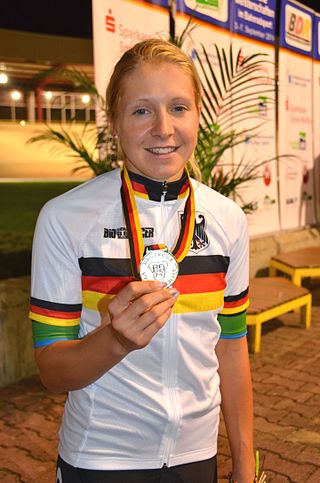
Stephanie Gaumnitz is a German retired racing cyclist. She rode at the 2014 UCI Road World Championships. At the 2015 UCI Track Cycling World Championships she won the gold medal in the points race.

Lucie Pohl is a German-American actress and stand-up comedian.

Jürgen Pohl is a German politician. Born in Magdeburg, Saxony-Anhalt, he represents Alternative for Germany (AfD). Jürgen Pohl has served as a member of the Bundestag from the state of Thuringia since 2017.

Rudolf Pohl was a German Catholic prelate, musician, and choral conductor based at the Aachen Cathedral, where he led the Aachener Domchor to international recognition and revived a school for its boys' choir. He edited sacred music by Johannes Mangon, who had worked at the Cathedral in the 16th century.

























